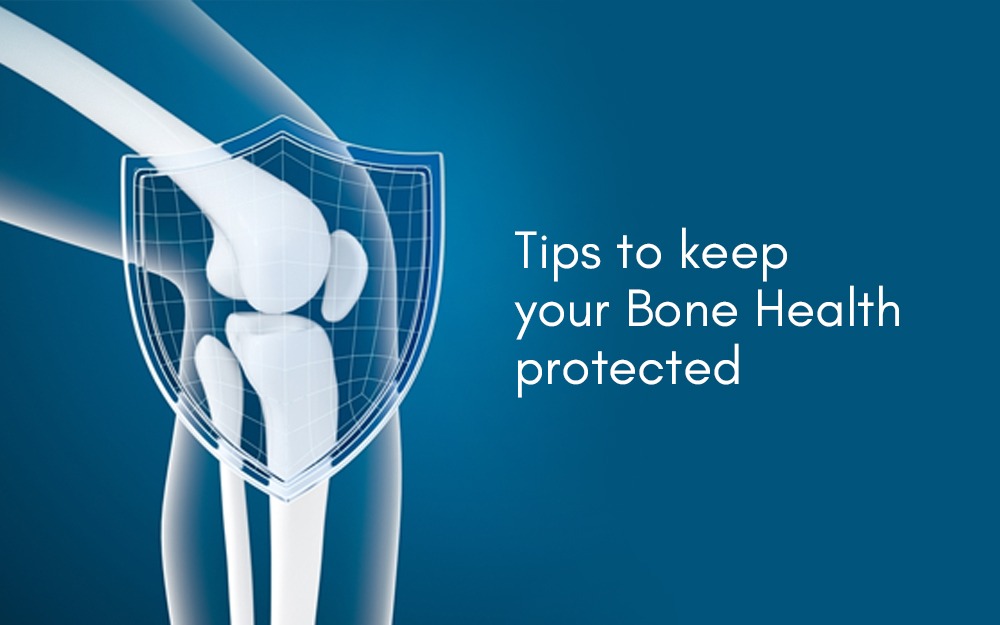Bones serve a variety of functions in the body, including structural support, organ protection, muscle anchoring, and calcium storage. While it is critical to have strong and healthy bones in infancy and adolescence, you may also protect bone health in maturity. Your bones are always changing; new bone is formed while old bone is broken down. When you are young, your body produces new bone quicker than it degrades old bone, and your bone mass grows. The average person reaches their greatest bone mass around the age of 30. Following that, bone remodelling occurs, but you lose slightly more bone mass than you gain.
What are some factors that affect bone health?
A variety of things can influence bone health. For example:
- The level of calcium in your diet: A low-calcium diet reduces bone density, causes early bone loss, and increases the risk of fractures.
- Physical activity: People who are physically sedentary are more likely to develop osteoporosis than their more active peers.
- Tobacco and alcohol use: According to research, tobacco usage is linked to weak bones. Similarly, having more than one alcoholic drink per day for women and two alcoholic drinks per day for males may raise the risk of osteoporosis.
- Gender: Women have less bone tissue than men, so they are more likely to develop osteoporosis.
- Size: You are at risk if you are exceptionally thin (with a BMI of 19 or less) or have a small body frame because you may have less bone mass to draw on as you age.
- Age: Your bones shrink and weaken as you age.
- Racial and family history: You are most likely to get osteoporosis if you are white or of Asian heritage. Furthermore, having a parent or sibling with osteoporosis increases your risk, particularly if you have a family history of fractures.
- Hormonal levels: Too much thyroid hormone might result in bone loss. Women’s bone loss accelerates rapidly during menopause due to low estrogen levels. A prolonged lack of menstruation (amenorrhea) before to menopause raises the risk of osteoporosis. Men with low testosterone levels may lose bone mass.
- Eating disorders and other issues: Both men and women’s bones weaken when they severely restrict their food intake or are underweight. In addition, weight-loss surgery and disorders like celiac disease might impair your body’s ability to absorb calcium.
- Certain medicines: Long-term usage of corticosteroid drugs, such as prednisone, cortisone, prednisolone, and dexamethasone, harms bone. Aromatase inhibitors used to treat breast cancer, selective serotonin reuptake inhibitors, methotrexate, various anti-seizure medications like phenytoin (Dilantin) and phenobarbital, and proton pump inhibitors are all potential risk factors for osteoporosis.
What are some steps to take to keep your bones healthy?
To prevent or delay bone loss, you can follow a few basic procedures. For example:
- Consume lots of calcium in your diet. The RDA for individuals aged 19 to 50 and men aged 51 to 70 is 1,000 milligrams (mg) of calcium per day. For women over the age of 51 and men over the age of 71, the recommended daily dose is 1,200 mg. Calcium-rich foods include milk, almonds, broccoli, kale, tinned salmon with bones, sardines, and soy products like tofu. If you struggle to get enough calcium from your diet, consult your doctor about supplements.
- Pay close attention to vitamin D. Your body requires vitamin D to absorb calcium. For persons aged 19 to 70, the recommended daily intake of vitamin D is 600 international units (IUs). For individuals aged 71 and up, the recommended daily intake doubles to 800 IUs. Oily fish including salmon, trout, whitefish, and tuna are excellent sources of vitamin D. Mushrooms, eggs, and fortified foods like milk and cereal are also good sources of vitamin D. Sunlight also aids the body’s manufacture of vitamin D. If you’re concerned about obtaining enough vitamin D, talk to your doctor about supplements.
- Include physical activity in your everyday routine. Walking, jogging, and climbing stairs are all weight-bearing exercises that can help you build strong bones and slow down bone loss.
- Stay away from drugs and alcohol. Do not smoke. If you are a woman, avoid consuming more than one alcoholic beverage per day. Men should limit their alcohol consumption to no more than two drinks each day.
While our bones are continually changing, recognizing the elements that influence bone health enables us to take preventative measures throughout life. We may grow strong bones in our childhood, slow bone loss in maturity, and lower the chance of fractures later in life by eating enough calcium and vitamin D, engaging in weight-bearing activity, and living a healthy lifestyle.
Remember, prioritising bone health is an investment in your long-term health. Address potential risk factors now, not later. Speak with your doctor about your bone health, develop a personalised strategy, and reap the benefits of healthy bones for an active and independent lifestyle.
